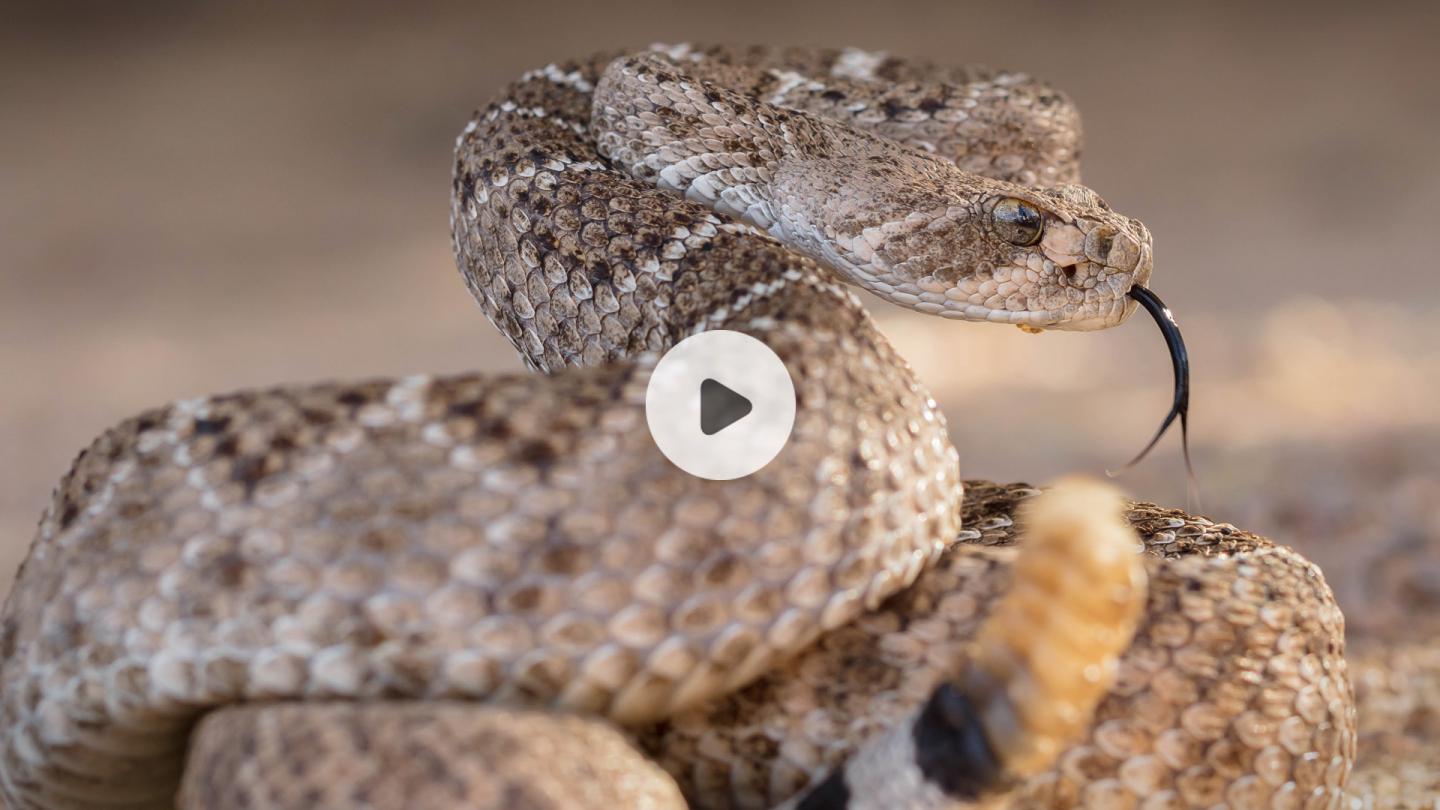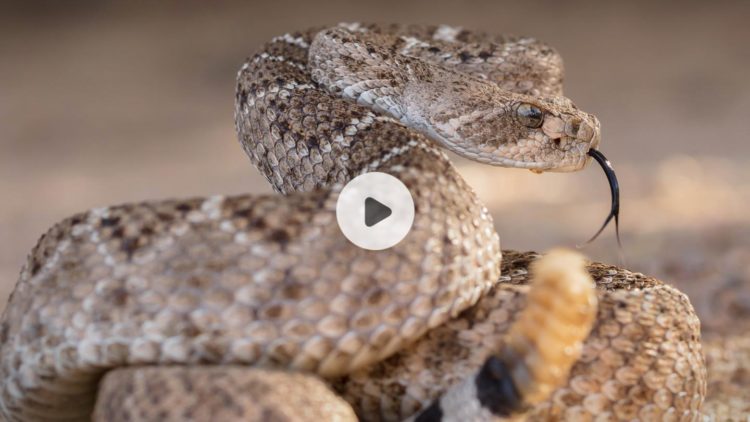
Credit: American Chemical Society
During storms in the southwestern U.S., some rattlesnakes drink rain droplets from scales on their backs. This unusual behavior could help them survive in a desert environment with infrequent rain. Now, researchers have figured out how the nanotexture of scales from these snakes helps them use their bodies to harvest rain. They report their results in in ACS Omega. Watch a video about the snake scales here.
The western diamondback rattlesnake (Crotalus atrox) from southern Arizona and other areas of the U.S. Southwest has been seen emerging from its den to harvest rain, sleet and even snow. The snake flattens its body and often forms a tight coil, presumably to maximize the area for water-gathering. As rain droplets coalesce on its back, the slithery reptile sucks water from the scales. Gordon Schuett, Konrad Rykaczewski and colleagues wanted to take a closer look at rattlesnake scales to determine what makes these serpents so adept at harvesting precipitation.
The researchers compared the surface wettability and nanotexture of scales from the western diamondback rattlesnake and two other species of desert-dwelling snakes that do not show rain-harvesting behavior: the desert kingsnake and the Sonoran gopher snake. The team dropped water onto the snakes’ backs, finding that the droplets beaded up, coalesced and stuck to the rattlesnake’s scales, whereas they formed shallow puddles that often slipped off the other snakes’ bodies. Scanning electron microscopy of rattlesnake scales revealed nanochannels that form a labyrinth-like network, but scales from the other two snakes did not show these same features. The rattlesnake’s dorsal scales aid in water collection by providing a sticky, hydrophobic surface that “pins” water droplets to the surface, the researchers say.
###
The authors acknowledge funding from the Biomimicry Center at Arizona State University.
The study is freely available as an ACS AuthorChoice article here.
For more research news, journalists and public information officers are encouraged to apply for complimentary press registration for the ACS Spring 2020 National Meeting & Exposition in Philadelphia.
The American Chemical Society (ACS) is a nonprofit organization chartered by the U.S. Congress. ACS’ mission is to advance the broader chemistry enterprise and its practitioners for the benefit of Earth and its people. The Society is a global leader in providing access to chemistry-related information and research through its multiple research solutions, peer-reviewed journals, scientific conferences, eBooks and weekly news periodical Chemical & Engineering News. ACS journals are among the most cited, most trusted and most read within the scientific literature; however, ACS itself does not conduct chemical research. As a specialist in scientific information solutions (including SciFinder® and STN®), its CAS division powers global research, discovery and innovation. ACS’ main offices are in Washington, D.C., and Columbus, Ohio.
To automatically receive news releases from the American Chemical Society, contact [email protected].
Follow us on Twitter | Facebook
Media Contact
Katie Cottingham
[email protected]
301-775-8455
Related Journal Article
http://dx.




